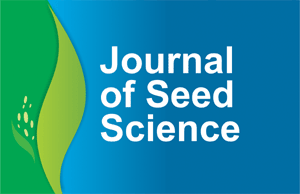Maturity stage and drying method are the factors that most influence coffee seed quality. The objective of this study was to assess the physiological quality and investigate the electrophoretic patterns of catalase and endo-β-mannanase enzymes and heat resistant proteins in coffee seeds harvested at different phenological stages and dried under different conditions. Physiological quality was assessed when the seeds had developed the green, greenish-yellow, cherry, overripe and dry stages after three treatments: no drying, conventional drying and fast drying. After each treatment, the physiological quality of the seeds was assessed using the germination test and electrophoretic patterns of heat resistant proteins and the activity of catalase and endo-β-mannanase enzymes. Seeds harvested at the cherry phenological stage had the best physiological quality, and the drying process reduced quality at the cherry, overripe and dry stages. This reduction was greater under the faster drying process, but at the greenish-yellow stage, seeds had better physiological quality after slow drying. Regarding the results from electrophoretic analysis, endo-β-mannanase and catalase activities increase as the ripeness stages advance; the activity of endo-β-mannanase is directly associated with the deterioration process; the expression of heat resistant proteins increases with maturation process and is associated with seed physiological quality.
Coffea arabica L.; seed drying; physiological quality; protein profile
